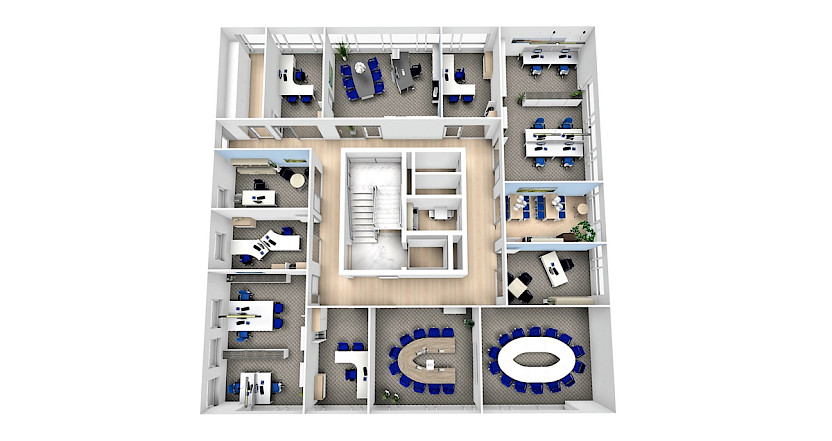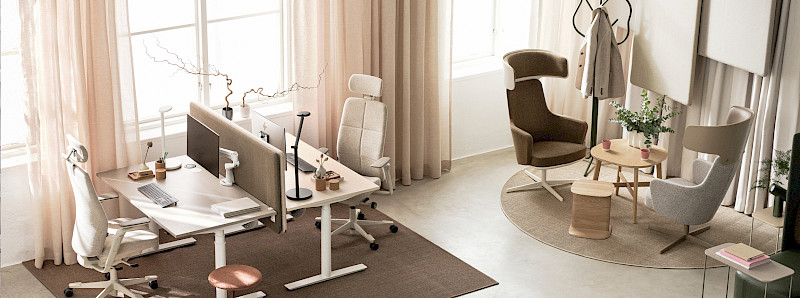According to ASR A1.2, multi-person offices are classified as cellular offices. These are “typically arranged along the façade of the building and accessed via a shared corridor. Multi-person offices generally accommodate up to six desk or screen workstations.”
Multi-person offices are well suited to teams or colleagues who need to collaborate closely and coordinate their work. They support communication and enable temporary coverage of tasks within the team.
If several employees regularly speak on the phone or hold discussions at their desks, sound-absorbing elements should be placed between workstations.



Advantages of Multi-Person Offices
- Enables close collaboration within teams or departments
- High level of confidentiality compared to more open office concepts
- Easier coordination regarding lighting, temperature and interior design choices
Disadvantages of Multi-Person Offices
- Relatively high space requirements
- Potential for mutual disturbance
- Limited flexibility for changes due to fixed walls
- Lack of transparency
According to ASR A1.2, a minimum floor area of 8 to 10 m² per workstation should be used as a planning guideline for multi-person offices.
Regardless of the office type, only rooms may be used that provide at least 8 m² for one workstation, plus a minimum of 6 m² for each additional workstation.
In addition, a minimum air volume of 12 m³ per person must be ensured.
(Note: These requirements do not apply to meeting or training rooms.)
The cover image of this article is taken from the showroom of the office furniture brand Kinnarps.





